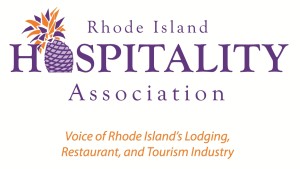
By Dale J. Venturini

Dale J. Venturini, President and CEO of Rhode Island Hospitality Industry Association.
We all know people who struggle with food allergies. From peanut butter, to shellfish, and strawberries to dairy, the idea of dining out when one has a food allergy can be an alarming proposition. Restaurants have to be incredibly careful when preparing and serving food to guests with allergies and have strict protocols to follow and diners need to be able to trust restaurants to take these restrictions seriously.
One allergy on the rise is gluten. From those with Celiac disease and other forms of gluten sensitivity and intolerance, to those simply looking to embrace what is a perceived a healthier lifestyle, gluten-free is taking center stage at many restaurants.
What is gluten? It is the general name of proteins found in wheat, rye, barley and triticale. It acts like glue that helps foods retain their shape. This allergy has dictated its own menu in many establishments, even pizzerias where gluten is a key ingredient.
The gluten-free movement has moved far beyond restaurants and entire aisles in grocery stores have been devoted to this category. According to a recent report in U.S. News & World Report, the gluten-free retail industry is projected to earn as much as $2.34 billion in 2019.
Gluten-free options are far from free, however, with prices markedly higher in both retail/grocery store and restaurant locations. Why? It costs much more to prepare foods without gluten. And, in a restaurant environment, the handling of the gluten-free item is equally as important and often requires additional labor.
According to the National Restaurant Association (NRA), gluten can be found almost everywhere in a restaurant kitchen. From traces of flour that might be airborne, to particles of breading in deep fryers, to touches of wheat-based sauces, the biggest challenge to serving truly gluten-free food in a restaurant is the possibility of cross contamination.
Currently, no FDA rules exist for restaurants serving gluten-free items other than the protocols in place for any allergy-based condition. The NRA is a valuable resource for restaurants that want to ensure that they are doing everything possible to prevent cross-contamination.
Understanding the allergy in the front of the house is the first rung on the service ladder. When a guest informs a server that a gluten allergy is present, the server should immediately alert a manager or consult the kitchen on foods that the guest can safely consume. Having a written resource handy on which foods contain gluten is invaluable. However, with menus often changing seasonally, taking the extra step to consult the kitchen is crucial.
Before proclaiming things “gluten-free” on a menu, there are some things to consider in the kitchen. First, flour is one of the biggest cross contaminants; its fine consistency allows it to be airborne and potentially travel to other areas in the kitchen. So, if a pastry chef is baking desserts, there is a strong possibility that the flour being used can wind up in an area of the kitchen reserved for food-allergy preparation and handling. Unless a restaurant is using an alternative like rice flour, the likelihood of cross-contamination is high.
Maintaining a separate food-preparation and handling station for all food-based allergies is critical. And, additional protocols including frequent hand washing and donning new gloves for each order is also encouraged. Storing gluten-free items in sealed containers away from other ingredients and also using dedicated cooking tools, utensils and cookware will also help protect guests against possible gluten exposure.
 Regardless of whether a customer has Celiac disease, gluten intolerance or is simply looking to eat gluten-free for its perceived health benefits, each request has to be taken as seriously as any other food-allergy situation. As we see food allergies on the rise, ensuring that restaurants are taking every actionable step possible to ensure a safe and an enjoyable guest experience is priority number one.
Regardless of whether a customer has Celiac disease, gluten intolerance or is simply looking to eat gluten-free for its perceived health benefits, each request has to be taken as seriously as any other food-allergy situation. As we see food allergies on the rise, ensuring that restaurants are taking every actionable step possible to ensure a safe and an enjoyable guest experience is priority number one.
For the latest information on gluten-free food handling and protocols for food allergies, please visit www.restaurant.org.
Dale J. Venturini is the President and CEO of the RI Hospitality Association. A veteran of more than 25 years in the hospitality industry, Venturini is considered by many to be the voice of the industry in the state of Rhode Island. She has been instrumental in improving the industry’s educational and training programs in the state, as well as enhancing the bottom line of the business she represents. Venturini splits her time between the office and the State House, a constant presence for her membership.



